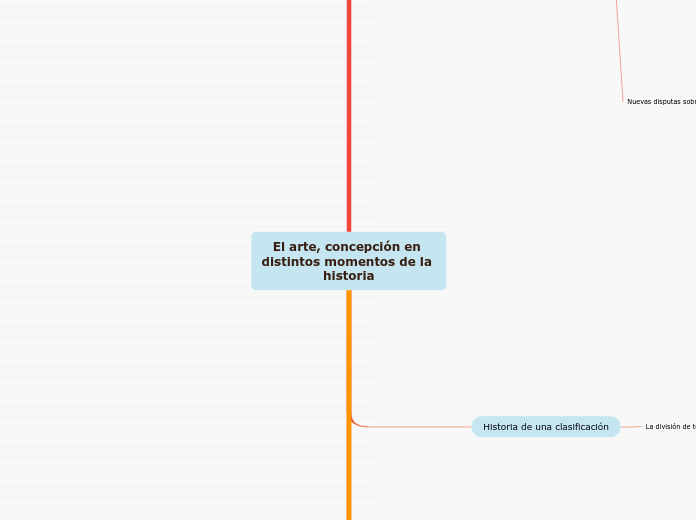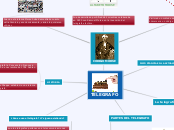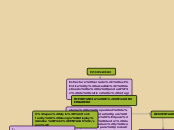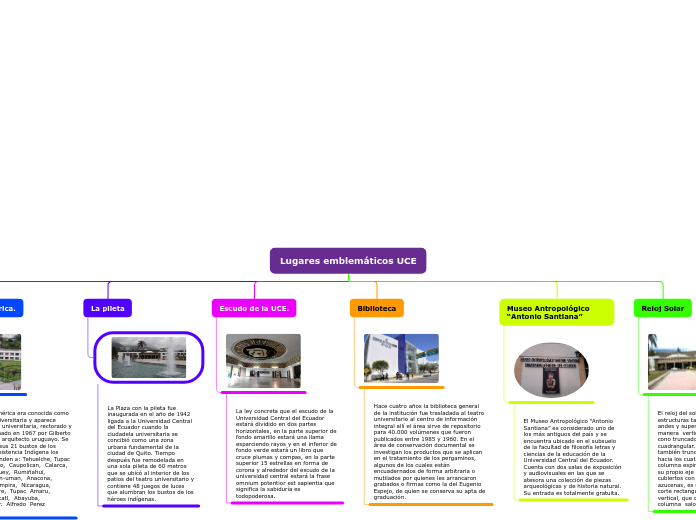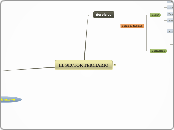El arte, concepción en distintos momentos de la historia
To name your story, you have to think about the overall message and what you want your audience to understand from the story. Also, make it relevant and easy to remember.
El arte como artificio
La conclusión de potebnia
Poesía = símbolo = facultad
Poesía = imagen
La poesía es una manera particular de pensar
creados para los fines de la contemplación estética
Las imagines son casi inmóviles
No provienen de ninguna parte
Pensamiento por medio de imagenes
Los surcos y los confines
Los caminos y sombras
Platón, la republica
The ending of a story is essential. We all know that if the ending is weak, what happened before loses its importance. So make it unpredictable, but fair. A resolved ending answers all the questions and ties up any loose threads from the plot.
placeres y deseos
se amplia su definición
Prueba política
Basada en la comparación de la ciudad
Los esclavos
Mortal hostilidad contra sus dueños
triste situación
La felicidad
el hombre tirano no llega a su plenitud
Adam llama política
doctrica platónica
Los tiranos y demagogos dominan las ciudades
sólo el bien puede ser querido
la voz viva de platón
This is the closure section of the story.
See examples of possible outcomes below:
- all problems have been solved
- it's clear how each one of your characters ends up
- your main character is transformed by the challenge
es el hombre dotado de la penetración de las almas y prescindir de las apariencias
se deja de sentir
Try answering these questions to come up with a closure:
- Have all the problems been solved?
- Is there a clear picture of what happens with each character in the story?
- Has the challenge transformed your main character?
- How do the characters feel in the end?
Platón presenta la tiranía
This is the moment when the main character surpasses the last obstacle and finally faces their greatest challenge.
The climax usually follows one of these patterns:
- realization
- resolution
- choice
Type in your answer.
término en el aspecto moral resulta infraqueable
término de un proceso
Historia de una clasificación
The middle of the story is where you add layers of complications that will lead to the end. Reveal more about the character's journey. Did their personality go through changes? How did they overcome the challenges? And as you build up the story’s central conflict, make it more personal to that character. Also, from the middle act, you have to lead into the final act.
La división de todas las artes
Each story has a main character and that character usually needs to solve a problem or challenge. The character's challenge is the one that creates tension throughout the story.
División de las artes liberales
Busca de una nueva división
La filosofía
Type in any other challenges which other characters in the story need to face.
cicerón
Muchas clasificaciones
Quintiliano
artes que producen objetos
artes que consiste en una actividad sin producir nada
artes que consisten sólo en el estudio
división de las artes en liberales y vulgares
sistema aristocrático
artes con esfuerzo fisico
Platón se basó en el hecho de que la diferenciación mantiene relación entre los objetos reales
Artes que producían cosas reales
La pintura
La arquitectura
Los sofistas distinguieron dos categorías
cultivaba por el placer que producía
Cultivaba por la utilidad que tenia
La idea de arte ha cambiado
In most stories, there are 3 challenges. The number 3 is a mystical number symbolizing completeness. Try to come up with interesting challenges with which your character needs to struggle.
See a few examples below:
- turns into a werewolf at night
- is sent back in time
Los griegos incluyeron la música y la poesía en el campo de la inspiración.
comprendía no sólo la habilidad artística si no cualquier tipo de habilidad humana
era algo concernía no a los productos si no al acto de producirlos
Historia de un concepto
In the beginning of the story (or the exposition), you will need to introduce the setting and characters. You might also want to introduce the main conflict. This part of the story is important because it gives the reader necessary background information and maybe even a first insight into a character’s personality.
Nuevas disputas sobre el campo del arte
definición alternativa
puede representar cosas inexistente
puede representar cosas existentes
Renuncia a una definición
ninguna definición de arte es necesaria
Caso especial
Discusiones sobre el concepto arte
Pero la belleza es una noción ambigua
El rasgo distintico del arte es que produce un choque
El rasgo distintivo del arte es que éste produce la experiencia
El rasgo distintivo del arte es la expresión
El rasgo distintivo del arte es que produce belleza
El rasgo distintivo del arte es la creación de formas
El rasgo distintivo del artes es que representa
El arte imita la naturaleza
Arte producción de belleza
áreas de la moderna idea del arte
arte como destreza o producto de una realidad realizada con destreza
Un objeto puede considerarse que es o no una obra de arte
el arte incluía la música, poesía y literatura
Interpretación liberal del arte
Comedia ligera y las operetas
Arquitectura industrial
Variación del concepto arte
Fluido en la practica
Las bellas artes
imitan la realidad
Las artes elegantes y agradables
Las artes musicales
Las artes ingeniosas
La transformación en tiempos modernos
The setting (time & place) of a story can change throughout the plot.
Para que el arte engendrara como hoy en día
The time of the story can also change. It can describe the event of a single day or can include an entire year's plot. Anyway, don't forget to mention it.
a comprenderse que las obras del escultor están relacionadas con la destreza, y obras del pintor y arquitecto hasta el punto de abarcar un solo concepto
conciencia para introducir la poesía
A mediados del siglo xvi se publicó la Poético de Aristóteles.
los oficios y la ciencia se eliminaron del ámbito arte
persistió hasta tiempos modernos
Your story can take place wherever your imagination will take you to.
For example: in an elevator, in an enchanted forest, etc. Don't forget to give details of the environment each time the setting changes, otherwise, the story can be confusing. Also, mention the seasons as each of them has unique weather and events.
Arte den la antigüedad
Characters are essential to a good story. Usually, the protagonist(s) is/are the most affected by the plot. Introduce a character by focusing on their actions, interests, and occupation, as the physical appearance doesn't make a difference in most cases.
No comprendía sólo las bellas artes, sino
también los oficios manuales, la pintura era un arte igual que lo era la sastrería
Type in the name of your character.
Durante la edad media se distinguieron siete artes liberales
Which traits best describe the character's personality? Choose more if necessary:
introvertedloyalkindindependentquick-thinkingadventuresomeidealisticsweet-naturedcalmrisk-takercreativewittystrictfussyweirdclumsyharshaggressivecarelessclingingcowardlycrueldeceitfulimpulsiveOther
theatrica
militatria
negotiatoria
medicinaria
suffragatoria
architectura
Lanificaria
destreza de producción
Choose the type of your chacter:
Protagonist (main character)Antagonist (main character's opponent)Flat (stereotypical character)Round (his/ her personality develops throughout the story)Static (doesn't evolve as a person throughout the story)Dynamic (dramatical change in personality)Confidant (the main character trusts him/ her)Foil (contrasting character who enhances the personality of another character)Other
